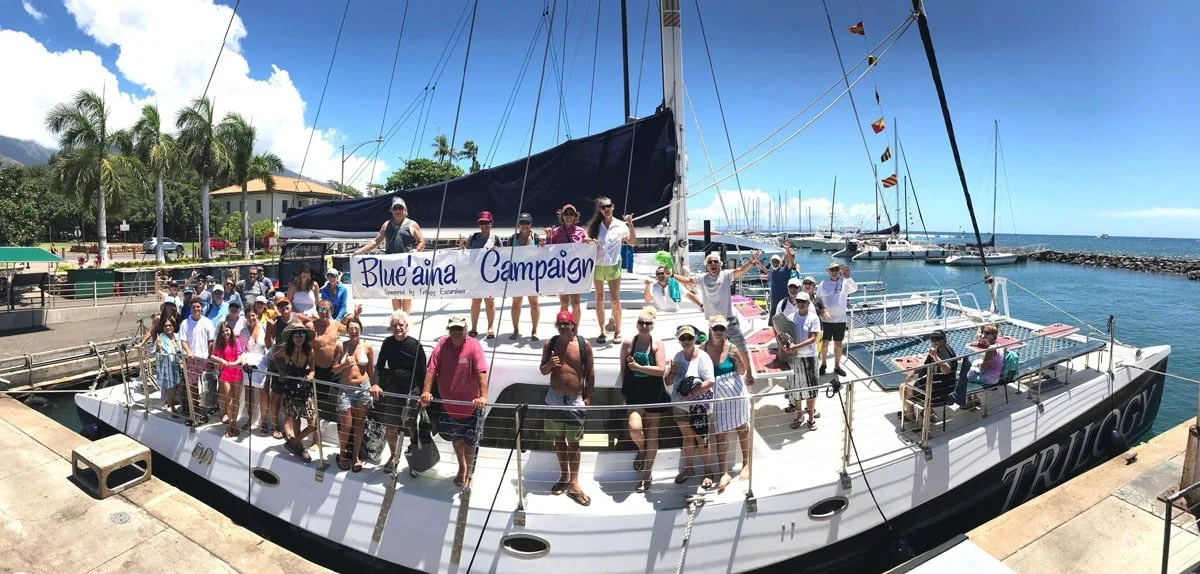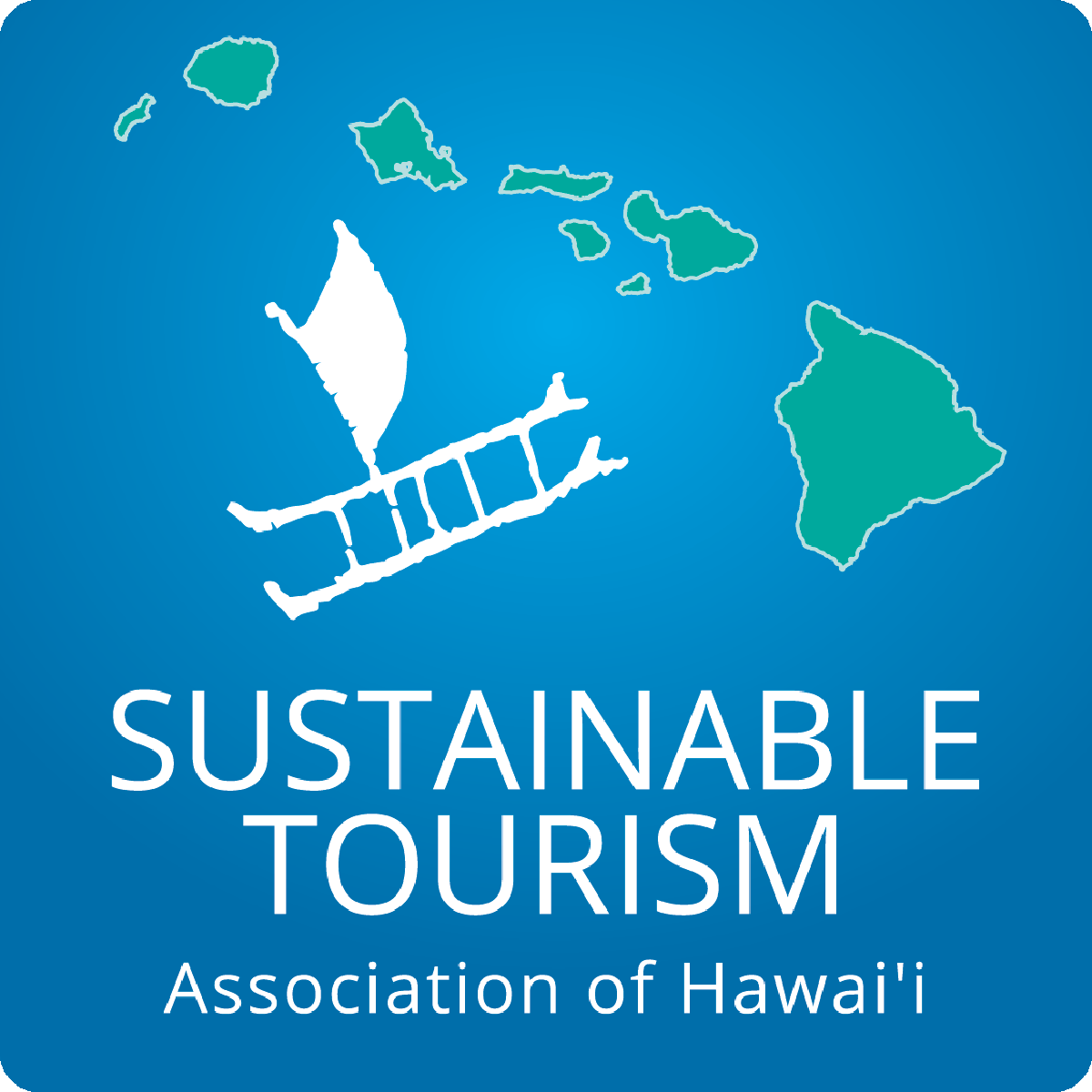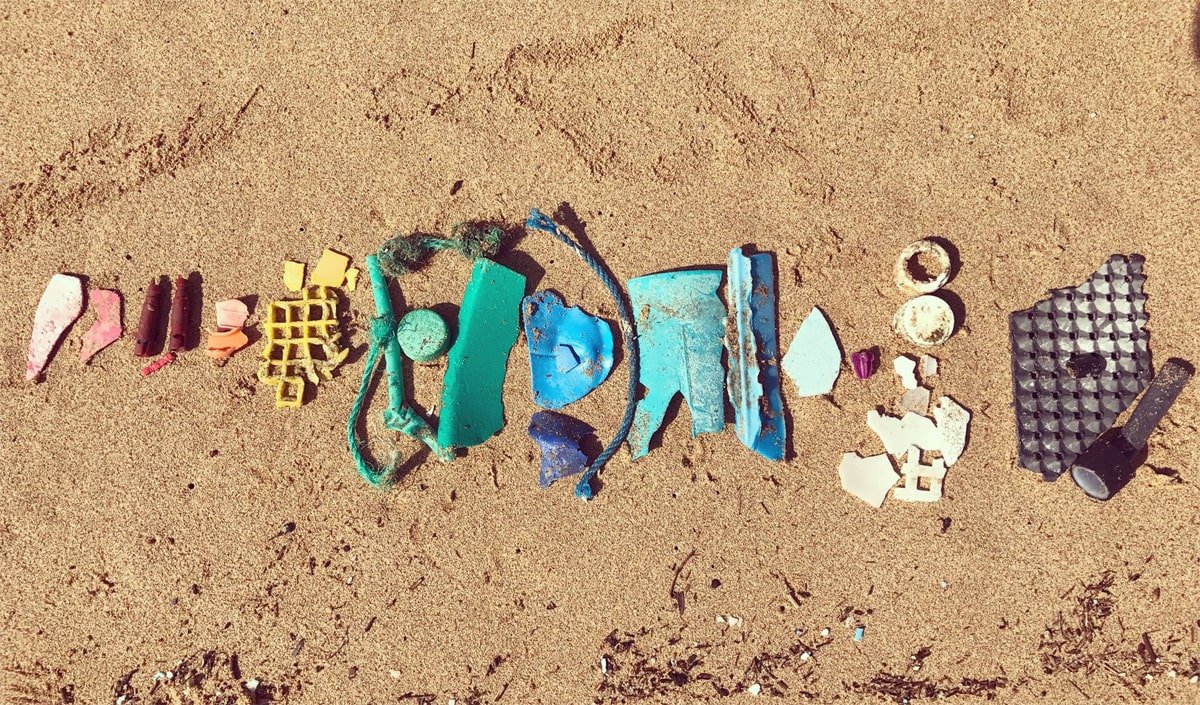The Conscious Traveler: 9 Tips For Responsible Maui Travel
In 2021, 2.3 million people traveled to Maui—that’s a lot for an island with just 160,000 people!
By July of 2022, estimates show that travel to Maui has exceeded pre-pandemic levels, when over 3 million people crossed the Pacific for the chance to visit a place that’s been ranked as the best island in the world.
Now, stop for a minute to imagine the difference between these two scenarios:
What if 3 million people, when traveling to Maui, all dropped a piece of trash?
What if 3 million people, when traveling to Maui, took the time to pick one up?
That’s an enormous change to our island’s health from a small, simple action, and it just goes to show how Maui visitors can have a big impact—for better or for worse.
As a company that’s operated Maui snorkeling tours for close to 50 years, we’ve seen the shift in travel to our islands and have worked to be leaders in sustainable travel and visiting Maui responsibly.
And, as one the best activities on Maui, we feel it’s our kuleana (responsibility) to share that knowledge with our valued guests so they, too, can help preserve and protect this place we call home.
If you—or anyone you know—plans on traveling to Maui, here are 9 tips for responsible travel that can not only help to minimize your impact, but give back to the island for generations to come.
1: Volunteer and give back to the island
If you want to really give back to the island, spend a half day volunteering with a local island non-profit.
Here at Trilogy we have our Blue ‘Aina reef cleanup program, but there are dozens of other volunteer opportunities, from helping restore petroglyphs in Olowalu, to planting native plant species in Honokowai Valley or joining in a beach cleanup with Sustainable Coastlines Hawaii.
Or, check out this list of voluntourism opportunities across the Hawaiian chain.
2: Check Out The Sustainable Tourism Association Of Hawaii
We know a lot travelers have the best of intentions when choosing their Maui activities. But with so many operators it can be a challenge trying to figure out which ones have sustainable practices and are working to protect our island.
Luckily for you, there’s an organization that’s already done the legwork and will help you plan your trip to Hawaii by recommending companies that have met rigorous standards for responsible travel and tourism.
Trilogy Excursions is a proud member of the Sustainable Travel Association of Hawaii, and is happy to recommend other operators who have met the same standards for community involvement and environmental protection.
Check them out when planning your trip!
3: Use Reef Safe Sunscreen When Snorkeling In Maui
Here’s the good news: An increasing number of Maui travelers are realizing the importance of reef safe sunscreen when swimming and snorkeling in Maui.
The best form of sun protection is a long sleeve shirt or rashguard, but when it comes to sunscreen, far too many people who go snorkeling in Maui are still using products with harmful ingredients. In 2021, a Hawaii law went into effect that bans the sale of any sunscreen containing oxybenzone or octinoxate—two chemicals used to block UV rays that have been linked to episodes of coral bleaching and coral toxicity and death. One problem, however, is that as of 2021, the law isn’t being enforced.
What’s more (and this is the tricky part), just because a sunscreen says it’s “reef safe,” might not mean it’s actually reef safe (since it can still include other, harmful ingredients—and there isn’t much regulatory oversight).
On all of our Maui snorkeling tours, we’ve outfitted the boats with Raw Elements sunscreen, which is a natural, organic, non-nano zinc oxide that’s free of any chemicals or dyes that can harm our fragile reefs.
When researching sunscreen for snorkeling in Maui, check to make sure it’s free of ingredients like:
Avobenzone
Octocrylene
Butylparaben
Octinoxate
Octocrylene
and a range of other harmful chemicals that can negatively impact our reefs.
4: Avoid Stepping On The Coral
All of our Maui snorkeling tours visit reefs that teem with colorful coral—but coral isn’t a rock.
Coral reefs are vast collections of living, delicate species, and when you stand up on coral—even for a second—you can inadvertently destroy decades of growth, or worse, kill the whole thing.
Help protect our coral reefs by snorkeling in water that’s sufficiently deep (so you aren’t tempted to stand), and avoid touching coral with your hands and fins—it’s all of ours to protect!
5: Respect Local Wildlife
Did you know Hawaii is often called “the endangered species capital of the world?”
Even though it makes up just .2% of the total US land mass, a whopping 25% of endangered species are endemic to here in Hawaii.
Sadly, in 2021, 9 of those species were declared extinct, further whittling the number of species that once thrived on these islands.
To help do your part in protecting local wildlife, be sure to give animals lots of space and help preserve their habitat.
During a Molokini snorkeling tour (where the second stop, along the the South Maui shoreline, is a popular place to see turtles), be sure to give turtles space to surface so they can comfortably come up for air. When visiting places like Haleakala Crater, stay on the trail (and keep your eyes on the road) so as not to negatively impact the habitat or health of endangered nene (Hawaii’s state bird).
Give our naia (spinner dolphins) room to rest by respectfully admiring them from a distance, and make sure you keep at least 100 yards between you and our kohala (whales).
6: Be Sensitive With Use Of Resources
As of this writing, in 2022, Maui is in the midst of a pretty bad drought.
Hawaiian wisdom has always spoke of it being all of our kuleana (responsibility) to malama i ka wai (take care of the water), and fresh water is such a precious resource that the Hawaiian word for rich, or wealthy, is literally water twice: waiwai.
When traveling to Maui, be mindful of the amount of water you’re using, as 3 million people all saving a few drops can really add up to a lot.
7: Minimize Use of Single Use Plastics
In 2015, Hawaii became the first state in America to ban the use of single use plastic bags, and here at Trilogy it’s been over a decade since we said “NO” to single use plastics.
Still, while the bag ban has undoubtedly kept plastic out of our ocean, single use plastics are still everywhere you look (that plastic fork when you get your bowl of poke; that single use bottle of water…), and much of it, unfortunately, still finds its way to the ocean, or gets buried and covered with sand.
Say no to that plastic cocktail straw, or pack a reusable water bottle you can fill up wherever you go.
Plastic pollution is a huge issue that’s plaguing our beaches and shorelines, so do your part when visiting the island to minimize (or eliminate!) any single use plastic— our honu (turtles) and he‘e (octopus) will thank you.
8: Buy Local
Here’s a bit of a scary statistic: Hawaii currently imports about 85-90% of its food.
Indigenous Hawaiians were self-sufficient, and lived in harmony with the ‘aina (land) and kai (sea) to feed the islands’ population.
No one likes importing nearly 90% of our food, but there’s one big problem standing in the way: It’s hard to make money as a farmer.
Studies have shown that 87% of Hawaii’s farms generate less than $50,000/year in revenue, which makes it hard to be economically viable and keep putting crops in the ground.
By buying locally-grown food and produce you help support small scale, local farmers who are working to combat food insecurity and reverse the era of imports.
Buying local also minimizes fuel that’s needed to transport produce, and it keeps dollars in the local economy—plus it tastes really good!
Check out places like Maui Hub to buy fresh, locally grown products, or simply select items on a restaurant menu that feature local ingredients.
9: show respect and practice aloha
It can be as simple as a smile and a wave, but our attitudes and actions can have a big impact on the the island’s overall health. Hawaii is a place unlike any in the world, with a culture, language, history, and ecology that we’re lucky, as visitors, to share in.
Appreciate these islands for what they are, and be mindful that we are guests in this place; this is somewhere to learn from—not change.
Show respect at cultural sites by not stacking or removing rocks, and embrace a slower pace of life that may be different than back home.
Give, share, slow down, smile, and simply be kind to each other. These are small but meaningful actions that all of us can take when traveling to Maui, and help in fostering that sense of aloha that’s such a rich part of Hawaii’s culture, and one we hope to share with our guests each time we welcome them aboard.
Mahalo from all of us at Trilogy Excursions for wanting to be a conscious traveler—this place is ours to protect!










